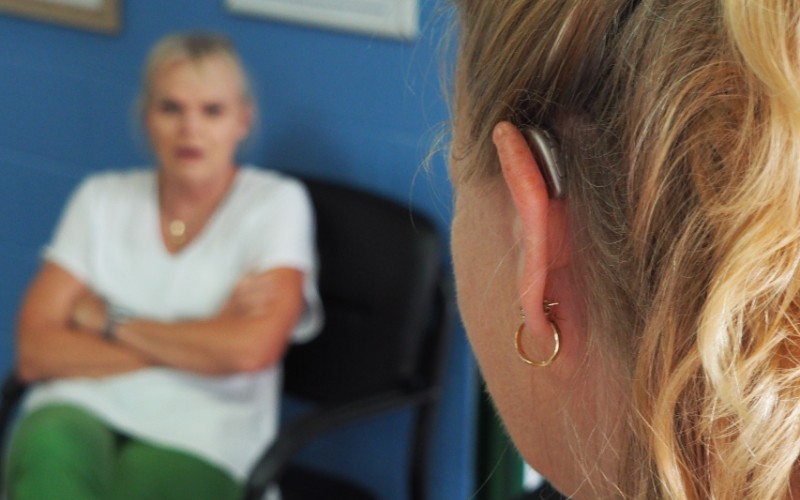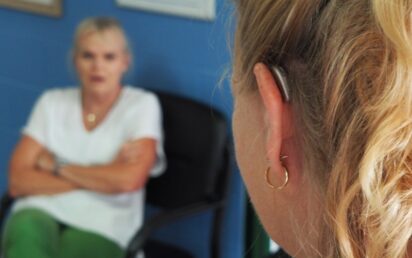If you or a loved one is experiencing hearing loss, getting hearing aids can make a massive difference. In the past, it was much easier to pick hearing aids because there were only a few types on the market. However, the incorporation of technology now means there are so many to choose from. Here’s what you need to know if you are in the market for hearing aids.
Get a Hearing Test First
The best way to determine if you need hearing aids is to talk to an audiologist. They will do a complete hearing test for both ears and check the ears to see if there is a physical component to your hearing loss. They may decide that you need hearing aids right now or could need them in the future. The latter scenario means you would have to come in for checks regularly, so the hearing care specialist can see how your hearing is progressing.
If you think you have hearing loss and need a hearing test, you can find a hearing care specialist near you at phonak.com/en-uk/find-a-provider where you can also book an appointment for your test.
Factors To Consider When Choosing Hearing Aids
Before we look at the hearing aids you can get, let us explore some of the factors you need to consider before choosing.
The Type And Extent Of Your Hearing Loss
This will be determined by your audiologist when you go in for your check. They will tell you your hearing loss extent and type, on the basis that different hearing aids are a better fit in certain conditions than others.
Your Lifestyle
In addition to the type and extent of your hearing loss, you also need to consider your lifestyle. If you spend most of your time at home, the style of the hearing aids might be less important than the features they have.
For example, you may find that Bluetooth capabilities are more important than how the hearing aids look. These capabilities allow the hearing aids to connect to your phone, television, or other devices. This reduces feedback while also allowing you to watch your favourite shows and movies or listen to music without disturbing others.
If you have an active lifestyle, you might want smaller hearing aids as they are more discreet and less susceptible to wind.
Features
Apart from Bluetooth connectivity, modern hearing aids also come with features that make some more appealing than others. These features include masking tinnitus, environmental noise reduction, and rechargeable batteries.
Visibility Preferences
Some people prefer that their hearing aids are discreet. If this sounds like you, then you might prefer in-the-canal hearing aids, Talk to your audiologist to discuss which options would work well with your preferences.
Smaller and discreet BTE hearing aids have become popular for those who want discreet options. However, there are other types of hearing aids to suit your lifestyle, preferences, and budget.
The Types of Hearing Aids You Can Get
There are five main types of hearing aids. These are in-the-canal (ITC), receiver-in-the-ear (RITE), CROS/BiCROS, behind-the-ear (BTE), and in-the-ear (ITE) hearing aids.
CROS/BiCROS
Your hearing care specialist or audiologists will recommend CROS/BiCROS hearing aids if you have minimal hearing loss or normal hearing in one ear, and little to no audio perception in the other. To use these hearing aids, you wear the hearing aid on the side that hears better and then an additional microphone on the other side.
Doing so allows you to hear sounds coming from the side with poorer hearing, even though you hear all sounds through the better ear. These hearing aids are great when having a conversation in a group or when someone is talking to your poorer side, as you can perceive sound from all directions.
Behind-the-ear Hearing Aids
These devices are used by people with different hearing loss levels. They fit behind the ear like their name suggests, and then the body is attached to a thin tubing or custom ear mould. These hearing aids have several small parts, so these hearing aids are recommended for people with enough dexterity.
In-the-ear (ITE)
These hearing aids are recommended for people who have moderate or severe hearing loss. They are either fitted to fill the entire ear or to only fit in the bowl of the ear.
Because they stay inside the ear, they are recommended for those who have difficulty dealing with small things or who have dexterity challenges.
Receiver-in-the-ear (RITE)
These are very similar to behind-the-ear hearing aids. They consist of the main body of the hearing aid that sits behind the ears, a soft tip that is placed in the ear canal, and a wire that connects the two. The tip does not seal the ear canal completely, which leads to some people saying that hearing aids like this produce a very natural sound.
These hearing aids require dexterity and are recommended for people with mild or severe hearing loss.
In-the-canal (ITC)
These sit deeper than in-the-ear devices, which makes them less visible. They are smaller than the other options, so they use small batteries. Their size can also make them more challenging to handle and insert compared to other hearing aids. In some circumstances, your doctor will recommend in-the-canal hearing aids, which sit much deeper in the ear canal making them even less visible.
Choosing Hearing Aid Batteries
Your hearing aids will need some batteries to work. You can get either disposable or rechargeable ones. The disposable batteries look like buttons and are not used that much anymore.
The preferred option today is rechargeable batteries, just like our smartphones and other devices. They are charged using a charger when not in use, which is often at night. Some hearing aids have a docking station to make it easier to charge the devices.
The rechargeable batteries last a long time and are a cost-effective option because you do not have to buy new ones every time they run out. This also makes them better for the environment because you will need fewer of them.
Conclusion
Hearing aids make a massive difference for people with various levels and types of hearing loss. Before buying them, though, talk to an audiologist so they can do a hearing test and help you pick the best ones for your specific circumstances.

